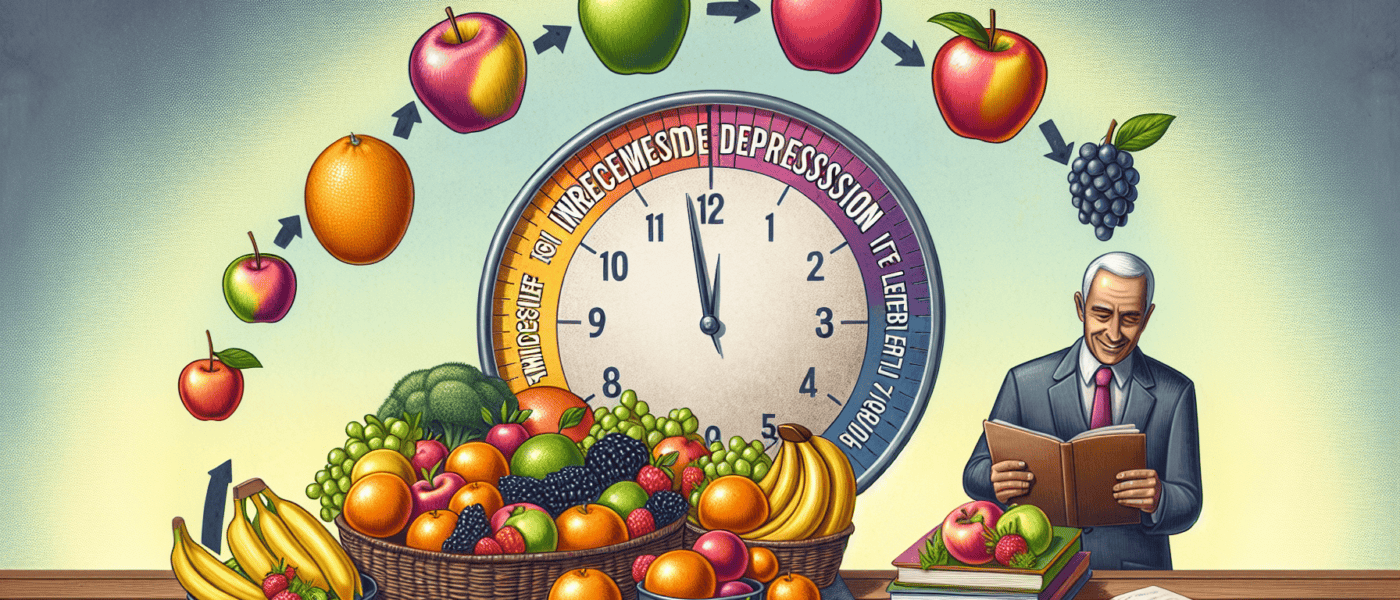Increase Your Fruit Intake in Midlife to Reduce Depression in Later Years, Study Suggests
Boosting Fruit Intake to Ward Off Late-Life Blues
A recent study conducted in Singapore suggests that increasing fruit consumption during midlife significantly lowers the risk of experiencing depressive symptoms in later years. The extensive research involved over 13,000 participants, making the findings particularly robust and noteworthy. With the worldwide prevalence of depression continuously on the rise, such dietary recommendations could prove to be a simple yet effective way to improve mental health outcomes as people age.
Fruit Intake and Depression
Data from the study indicates that consuming at least three servings of fruits each day can diminish the likelihood of ageing-related depression by 21%. This promising association between higher fruit intake and reduced depressive symptoms might be driven by the high levels of antioxidants and anti-inflammatory micronutrients present in fruits. Vitamins such as vitamin C and compounds like carotenoids are known for their beneficial impact on overall health, including mental well-being.
Moreover, the research particularly highlights flavonoid-rich fruits, which were found to have a significant inverse relationship with major depressive disorder (MDD). These fruits possess compounds that are not only antioxidants but also play a crucial role in reducing inflammation, thus promoting brain health. Even as fruit consumption stands out for its protective effects, the study did not find similar benefits linked to vegetable intake.
Methodology and Analysis
The researchers employed a comprehensive methodology, averaging data on vegetable and fruit consumption along with nutrient intake from the years 1995 and 2000. Certified psychiatrists then diagnosed MDD in 2014-2015, allowing for an extensive follow-up period to observe the long-term effects of diet on mental health. Logistic regression analysis was used to analyze the odds of MDD across various quintiles of vegetable and fruit consumption and quartiles of nutrient intake. The analysis meticulously adjusted for age, sex, employment status, alcohol consumption, current smoking habits, and physical activity.
The findings consistently showed that participants with the highest quintile of total fruit consumption and flavonoid-rich fruit intake had significantly lower odds of developing MDD compared to those in the lowest quintile. However, these benefits did not extend to total vegetables or a combination of total vegetables and fruits. This emphasizes that while fruits are a potent dietary component for mental health, vegetables might not provide the same level of depressive symptom prevention in later life.
Conclusively, the study aligns with previous research underscoring the preventive effects of fruit consumption on depression. While the results highlight a clear relationship between midlife fruit intake and lower late-life depressive symptoms, the researchers also noted limitations. Specifically, the focus on MDD in later life and the extended follow-up period could explain the lack of observed antidepressive effects from vegetables. Future studies may benefit from adjusting for additional potential confounders to provide an even clearer understanding of these dietary impacts on mental health.
In summary, encouraging greater fruit consumption during midlife presents a promising dietary strategy to enhance mental health and reduce the prevalence of depression as individuals grow older. These findings underscore the importance of dietary choices and their long-term impacts on mental well-being.
